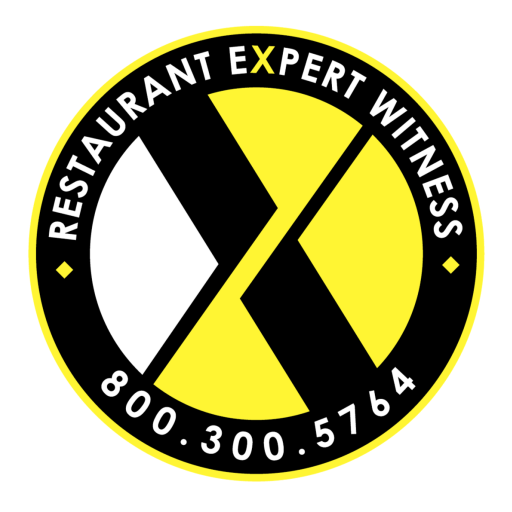Restaurant OSHA & ADA – Restaurants & Bars

Call an Experienced Restaurant & Bar Expert
(800) 300-5764
Judges and Juries respect Howard Cannon's expertise and recognize his famous books found in bookstores across America and in 76 countries around the world.
Call today for a FREE confidential, no-obligation initial consultation with Restaurant Expert Witness, Howard Cannon.
Restaurant Expert Witness – Howard Cannon is OSHA Certified; and, with over 28 years in the restaurant, bar, food and beverage industry, Howard understands how OSHA and ADA Compliance Affects Employees and Patrons Alike.
Howard is the author of Restaurant OSHA Safety and Security ©2016, The Book of Restaurant Industry Standards & Best Practices.
The National Restaurant Association, as well as others, provide restaurant industry training programs designed for the more-than 14 million employees in over 1 million restaurants nationwide; but, even with that being said, many restaurant and bar establishments – of all types and sizes – still fall short of complying with Occupational Safety and Health Administration (OSHA) and Americans with Disabilities Act (ADA) requirements. The chances are pretty good that eventually OSHA and/or ADA will affect each and every restaurant and bar location, regardless of whether it is a single unit or part of a multi-unit organization, as OSHA and ADA compliance is becoming increasingly more important each and every year.
Restaurant OSHA & ADA Requirements in Restaurants and Bars are No Laughing Matter
Restaurants and bars must take OSHA and ADA compliance seriously by taking the necessary steps to avoid violating OSHA and ADA rules, regulations, and requirements. The majority of these practices are basic, common-sense policies and procedures that can easily be implemented with proper management oversight and training. Compliance with OSHA and ADA can prevent tens of thousands of dollars in fines, and will also reduce dangerous conditions and hazards in the workplace for employees and patrons alike – most likely improving the morale of employees, increasing productivity, and improving customer service in the process.
Preventative Measures for Safety
Taking the proper measures (check out Restaurant Risk & Safety Management by Restaurant Expert Witness) to comply with OSHA and ADA can help to lessen the number of accidents for both employees and customers; decreasing the event of burns; slips, trips & falls; eye injuries, and many other preventable incidents that even the best run restaurants still experience. The proper training and operating of a restaurant, along with the proper implementation of OSHA and ADA rules, does not normally require overly-dramatic steps; but, the data shows that many restaurant and bar owners and managers are still overlooking many of them.
For example, some of the most common OSHA cites include:
Failure to:
- Provide continual and ongoing safety training for ALL employees;
- Document training and job-specific aspects of safety training;
- Keep floors clean, dry, and slip-resistant;
- Provide job hazard analysis and protective equipment;
- Provide the right tools for the job;
- Supply Hazard Communication information (such as, MSDS – Material Safety Data Sheets);
- Provide adequate machine equipment and maintenance; and,
- Establish Emergency Action Plans — exit routes, fire extinguishers, adequate signage.
In line with OSHA, ADA also requires that ground and floor surfaces along accessible routes and in accessible rooms and spaces (including, floors, walks, ramps, and curb ramps) be stable, firm, and slip-resistant — mandating non-slip flooring in public buildings (the ADA handbook lists and includes restaurants, bars, and hotels, as well as several others, as “public accommodations”). Cost of failure to comply can include the ADA fining the establishment a severe penalty, in addition to requiring that the establishment pay the legal expenses of those who bring any action against them.
Additionally, ADA requires “reasonable accommodation” — that being, any change or adjustment to a job or work environment that permits a qualified applicant or employee with a disability to participate in the job application process, to perform the essential functions of a job, or to enjoy benefits and privileges of employment equal to those enjoyed by employees without disabilities — unless the employer can show that the accommodation would be an undue hardship (requiring significant difficulty or expense).
For example, reasonable accommodation may include:
Providing:
- Modified or certain equipment or devices;
- Job restructuring;
- Part-time or modified work schedules;
- Adjusted or modified examinations, training materials, or policies;
- Providing readers and interpreters; and,
- A readily-accessible workplace usable by those with disabilities.
The ADA makes it against the law to discriminate in employment practices such as recruitment, firing, hiring, training, job assignments, promotions, pay, benefits, leave, lay off, all other employment related activities. It is also unlawful for an employer to retaliate against you for asserting your rights under the ADA. The Act also protects you if you are a victim of discrimination because of your family, business, social or other relationship or association with an individual with a disability.
Call today for a FREE initial, no-obligation consultation with Restaurant Expert Witness – Howard Cannon: 800.300.5764.
